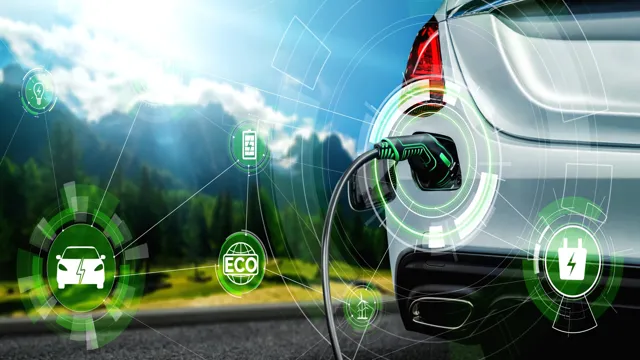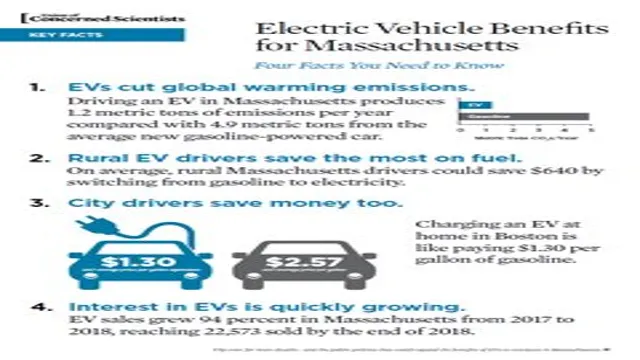Unveiling the Benefits and Savings of Electric Cars: A Comprehensive Look at Car Benefit Rates
Electric cars have become a hot topic in recent years, as people are beginning to realize the benefits they bring to both the environment and their wallets. One of the main advantages of going electric is the reduced cost of fuel, as it is significantly cheaper than gasoline. However, another area where electric cars come out ahead is in the form of Benefit-in-Kind (BIK) rates.
These are rates that are used to calculate the tax payable on company cars, and electric cars are a winner in this regard. In this blog, we’ll take a closer look at what electric car benefit rates are and what you need to know about them. By the end, you’ll understand why going electric can mean significant savings for you or your business.
Overview of Car Benefit Rates
If you’re considering purchasing an electric car as a company vehicle, you may be wondering what the car benefit rates are. Generally, the car benefit rate is the amount of tax you have to pay on a company car, and it’s based on the car’s list price and CO2 emissions. However, electric cars are typically subject to lower car benefit rates than traditional petrol or diesel cars due to their lower emissions.
This means that choosing an electric car as your company vehicle could be a tax-efficient option. Keep in mind that the car benefit rate also takes into account other factors, such as fuel type, so it’s best to consult with a tax professional to determine the exact car benefit rate for your electric car. But overall, electric cars are a great option for environmentally-friendly and budget-conscious businesses.
Understanding Car Benefit Rates
As an employee, receiving a company car as part of your benefits package is a great perk. However, it’s important to understand car benefit rates and how they may affect your taxes. Car benefit rates are the values assigned to a company car for tax purposes.
If you use the car for personal use, you will be taxed on the value of the benefit. The amount of tax you pay is based on the car’s list price and CO2 emissions. It’s important to note that if you’re the one who purchased the car, this does not apply.
On the other hand, if you are an employee and receive a company car, it’s crucial to understand how the tax on the benefit rate works. It may impact your tax bill or paycheck. It’s best to talk to your employer or seek professional advice if you have any questions about car benefit rates.

How Electric Cars Affect Benefit Rates
Car Benefit Rates, Electric Cars When it comes to car benefit rates, one of the factors that can impact the overall cost is the type of vehicle being used for business purposes. In recent years, the rise of electric cars has started to affect benefit rates as well. Since electric cars produce no emissions and are therefore more environmentally friendly, they often lead to reduced tax and national insurance costs for both employers and employees.
Additionally, the government has provided incentives to encourage the use of electric cars, such as reducing the taxable benefit rates for electric company cars and offering a grant for employers who install charging points. It’s important to consider these factors when weighing the potential cost savings and benefits of using electric cars for business purposes.
Factors That Affect Electric Car Benefit Rates
Car benefit rates for electric cars are influenced by a number of factors, including the cost of the car, the type of battery it uses, and the distance that can be traveled on a single charge. The cost of an electric car can be higher than that of a traditional gas-powered car, and this can impact the car benefit rates that are offered to employees. Additionally, the type of battery used in an electric car can have an impact on its benefit rate.
Lithium-ion batteries are more common in electric cars due to their higher energy density, which allows for longer ranges and faster charging times. Finally, the range of an electric car can also impact its benefit rate. Cars with longer ranges may have higher benefit rates due to their greater practicality for employees who need to travel long distances.
Overall, these factors are all important to consider when determining the best electric cars for companies to offer as part of their employee benefit packages.
Type of Electric Car
“electric car benefit rates” When it comes to electric cars, there are different types that you can choose from, each with its unique features and benefits. However, one of the most important factors that you should consider is the electric car benefit rates. The amount of money you save by owning an electric car depends on factors such as the cost of electricity in your area and the type of electric car you choose.
For instance, plug-in hybrids are considerably cheaper than fully electric vehicles since they have an internal combustion engine that can switch to gasoline when the electric battery runs out. On the other hand, the benefits of owning a fully electric vehicle are numerous, including lower operational costs, tax credits, and government rebates. Therefore, it’s essential to consider your driving habits, the distances you travel, and your budget to determine the best type of electric car that will benefit you the most.
Emissions and Efficiency Ratings
When considering the benefits of an electric car, emissions and efficiency ratings are key factors to keep in mind. These ratings reflect the environmental impact and fuel economy of the vehicle, which play a significant role in determining cost savings and overall value. Electric cars produce little to no emissions, lowering your carbon footprint and helping to preserve the planet.
Additionally, their efficiency rates are typically higher than gas-powered vehicles, meaning you’ll use less energy to travel the same distance. When comparing electric cars, it’s important to look at both emissions and efficiency ratings to determine which model will provide the greatest benefit. So, if you’re looking for a more eco-friendly vehicle with long-term cost savings, an electric car with high emissions and efficiency ratings is the way to go.
Battery Capacity and Range
Electric car benefit rates depend on many factors, but one important factor is battery capacity and range. A larger battery capacity means the car can travel further on a single charge, which is essential for those who commute long distances or frequently travel. The range is also affected by the terrain and driving conditions, so it’s important to consider these factors when evaluating the benefits of electric cars.
In addition, the type of charger being used can impact the charging time and the overall convenience of owning an electric car. While the initial cost of purchasing an electric car may be more expensive than a traditional gas car, the lower cost of electricity and maintenance can make up for it in the long run. Overall, it’s important to weigh the pros and cons carefully before making the switch to an electric car to ensure it’s the best decision for your individual needs.
UK Electric Car Benefit Rates in Detail
If you’re considering purchasing an electric car in the UK, you may be wondering about the car benefit rates that apply. The good news is, electric cars are currently subject to some of the lowest rates of car benefit tax. For the 2021/22 tax year, the rate for zero-emission cars like electric cars is just 1% of the vehicle’s list price.
This means that for most electric cars, the amount of tax payable will be minimal. However, it’s worth noting that the rate will increase in the coming years, with a 2% rate being introduced in 2022/23 and a 3% rate in 2023/2 Despite this, electric cars will still be subject to much lower rates than many petrol or diesel cars, which can have rates as high as 37%.
So if you’re considering making the switch to an electric car, it’s definitely worth taking these tax benefits into account.
Company Car Tax Rates
If you’re considering purchasing an electric car as a company vehicle in the UK, you should be aware of the various benefits and tax rates available. In general, electric cars have lower tax rates than their petrol or diesel counterparts, making them an attractive option for businesses looking to save money. In fact, electric cars are currently exempt from company car tax in the UK until April 202
After this date, the tax rates will depend on the car’s CO2 emissions and its purchase price. However, electric cars that emit less than 50g/km of CO2 are still expected to have very low tax rates, making them an excellent choice for company fleets. Additionally, electric cars are also exempt from paying the London Congestion Charge and receive free parking in many areas.
Overall, investing in an electric company car can save your business money while also reducing your environmental impact.
Salary Sacrifice Options
If you’re considering buying an electric car in the UK, you may be wondering what the financial benefits are. One of the key incentives to make the switch to electric is the government’s benefit rates for electric vehicles. Drivers who choose to purchase an electric car will be eligible for a number of cost savings and perks, including lower tax rates, reduced fuel costs, and savings on parking fees.
In addition to these benefits, many companies offer salary sacrifice options, allowing employees to lease an electric car through their employer and pay for it using pre-tax earnings. This can result in significant savings and make electric cars more accessible to a wider range of drivers. Overall, the UK electric car benefit rates make it an attractive option for anyone considering making the switch to a greener way of driving.
Benefits of Choosing an Electric Car
Car benefit rates for electric cars are rising in popularity due to their numerous advantages. Firstly, electric cars are more cost-effective in the long run as they require less maintenance than traditional gas-powered cars. This is because electric cars have fewer moving parts that can break down or require replacement.
Secondly, they are environmentally friendly as they emit no greenhouse gases, which reduces carbon footprint and air pollution. In addition, electric cars are quieter and smoother to drive, thereby reducing noise pollution. Furthermore, they are also eligible for government incentives such as tax credits, rebates, and reduced toll or parking fees.
Finally, electric cars are a smart investment as they appreciate in value over time, whereas traditional cars depreciate in value. Overall, electric cars offer numerous benefits that make them an ideal choice for car owners who want to save money, reduce their environmental impact, and have a premium driving experience.
Savings on Fuel and Maintenance Costs
Choosing an electric car is not just environmentally friendly, but it has immense financial benefits too. One of the primary advantages of owning an electric car is the savings on fuel costs. With gasoline prices constantly fluctuating, it can be difficult to budget accurately for transportation costs.
But with an electric car, you can charge your vehicle at home for a fraction of the cost of traditional gasoline. Moreover, electric cars require far less maintenance than their counterparts. There’s no need for oil changes, spark plug replacements, or other regular services that gas-powered vehicles require.
This not only saves money on maintenance fees but also helps decrease the chances of mechanical failures. In addition, electric vehicles have fewer moving parts which means less things to worry about breaking down. Therefore, it’s no surprise that more people are choosing electric cars as their primary mode of transportation.
By opting for an eco-friendly and cost-effective way of travel, you can reduce your carbon footprint while keeping more money in your pocket.
Eco-Friendliness and Corporate Responsibility
Electric car One of the most significant benefits of choosing an electric car is its eco-friendliness. Unlike gasoline-powered vehicles, electric cars don’t release harmful emissions into the atmosphere, making them an excellent choice for environmentally conscious consumers. Furthermore, the use of electric cars can play a pivotal role in corporate responsibility by helping companies reduce their carbon footprint.
By switching to electric cars, businesses can demonstrate their commitment to sustainability and lead the charge towards a more sustainable future. In addition to their eco-friendliness, electric cars are also highly efficient and cost-effective. They offer lower maintenance costs, and the cost of charging an electric vehicle is much lower than the cost of refueling a gas-powered vehicle.
In summary, if you’re looking for a car that is environmentally friendly, cost-effective, and efficient to run, an electric car is an excellent choice to consider.
Conclusion
In conclusion, choosing an electric car as your company vehicle not only benefits the environment, but also your wallet. With lower car benefit rates and reduced fuel costs, the electric car proves to be a smart and savvy choice for both the driver and the planet. So next time you’re in the market for a company car, think electric and join the movement towards a greener future.
After all, who says going green can’t also mean saving green?”
FAQs
What are the current car benefit rates for electric cars?
As of 2021, electric cars have a benefit-in-kind tax rate of 0%. This means that employees who receive electric cars as part of their company car scheme are not required to pay any tax on the benefit.
Are car benefit rates for electric cars subject to change in the future?
It is possible for car benefit rates to change in the future, depending on government policies and regulations. However, with the current focus on reducing carbon emissions, it is likely that electric cars will continue to receive favorable tax treatment.
How much can employees save on taxes by choosing an electric car as their company car?
The amount of money that employees can save on taxes by choosing an electric car as their company car will depend on their individual tax bracket and the value of the car. However, in general, electric cars offer significant tax savings compared to traditional petrol or diesel cars.
What other benefits are there to owning an electric car besides tax savings?
Electric cars offer a range of benefits, including lower fuel and maintenance costs, reduced emissions, and quieter operation. In addition, many governments offer incentives to encourage the adoption of electric cars, such as tax credits, rebates, and free parking or charging.


